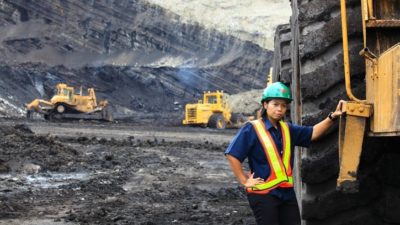Following two days of heavy selling, Rio Tinto Ltd (ASX: RIO) shares are charging higher today.
Shares in the S&P/ASX 200 Index (ASX: XJO) iron ore miner closed down 3.6% yesterday, trading for $108.40. In early afternoon trade on Friday, shares are up 2.4%, changing hands for $110.95 apiece.
This sees Rio Tinto shares handily outpacing the 1.3% gains posted by the ASX 200 at this same time.
Its major rivals are also outperforming.
The Fortescue Metals Group Ltd (ASX: FMG) share price is up 4.0% to $17.48, while BHP Group Ltd (ASX: BHP) shares are up 2.4% to $40.14 apiece.
Today's outperformance comes despite the iron ore price sliding again overnight to trade for just over US$95 per tonne. In early May that same tonne was worth US$120. And at the beginning of 2024 iron ore was trading for US$144 per tonne.
Indeed, the big year to date decline now sees the industrial metal trading at its lowest levels since November 2022.
So, why are BHP, Fortescue and Rio Tinto shares outperforming today?
Well, it looks like after some major share price falls over the past week and through much of 2024, there could be some bargain-hunting afoot among investors with a longer-term horizon. Investors may also believe that the iron ore price is approaching a bottom.
As for this year's share price pressure, here's how the three ASX 200 iron ore giants have performed year to date:
- Rio Tinto shares are down 19%
- BHP shares are down 21%
- Fortescue shares are down 41%
Now, here's what's happening with China and the nation's iron ore hungry steel markets.
Are Rio Tinto shares facing a 'harsh winter'?
Much of the downward pressure on the iron ore price in 2024 and the resulting pressure on Rio Tinto shares stems from ongoing weakness in the Chinese economy. The nation's steel-hungry property sector has been a particular laggard, dampening demand for Aussie iron ore.
And the outlook doesn't appear likely to improve in the short term.
According to data from the National Bureau of Statistics of China, July's steel production in the Middle Kingdom was down 9% from June and almost 11% from May's levels.
This resulted in a rather stark warning from Hu Wangming, chairman of Baowu, the world's biggest steelmaker.
As Bloomberg reports, Wangming cautioned that China's steel sector was facing a "harsh winter" he believes will be "longer, colder and more difficult to endure than we expected".
Wangming said Baowu's staff should focus on minimising risks and costs.
"In the process of crossing the long and harsh winter, cash is more important than profit," he said. "Financial departments at all levels should pay more attention to the security of the company's funding."
Today's sharp lift in BHP, Fortescue and Rio Tinto shares would suggest investors believe much of these risks have now been priced into their valuations.
CBA analysis
Commenting on Baowu's blunt warning, Commonwealth Bank of Australia (ASX: CBA) commodity analyst Vivek Dhar said (quoted by The Australian), "What is clear over the last year is that average steel mill margins have been more negative than any other 12‑month period prior since at least November 2016."
As for what to expect from the iron ore price ahead, Dhar said:
We think iron ore prices can drop to as low as US$90 a tonne given how negative steel mill margins have become. A key difference to the fall in iron ore prices earlier this year when steel mill margins were just as negative, is that seaborne supply is now at risk of exiting as prices move below $US100 a tonne
This would typically mean a slower price drop, but our concern is that the speed that iron ore prices can fall will likely be driven by the surprising deterioration in China's near‑term steel demand.
A lower iron ore price could continue to hold back the performance of Rio Tinto shares so long as China's property sector remains in the doldrums.
According to Dhar:
While demand and supply factors have led to a subdued property sector in China, we believe supply factors, particularly improving the credit quality of China's property developers, is key in alleviating the pressure on China's property sector.









